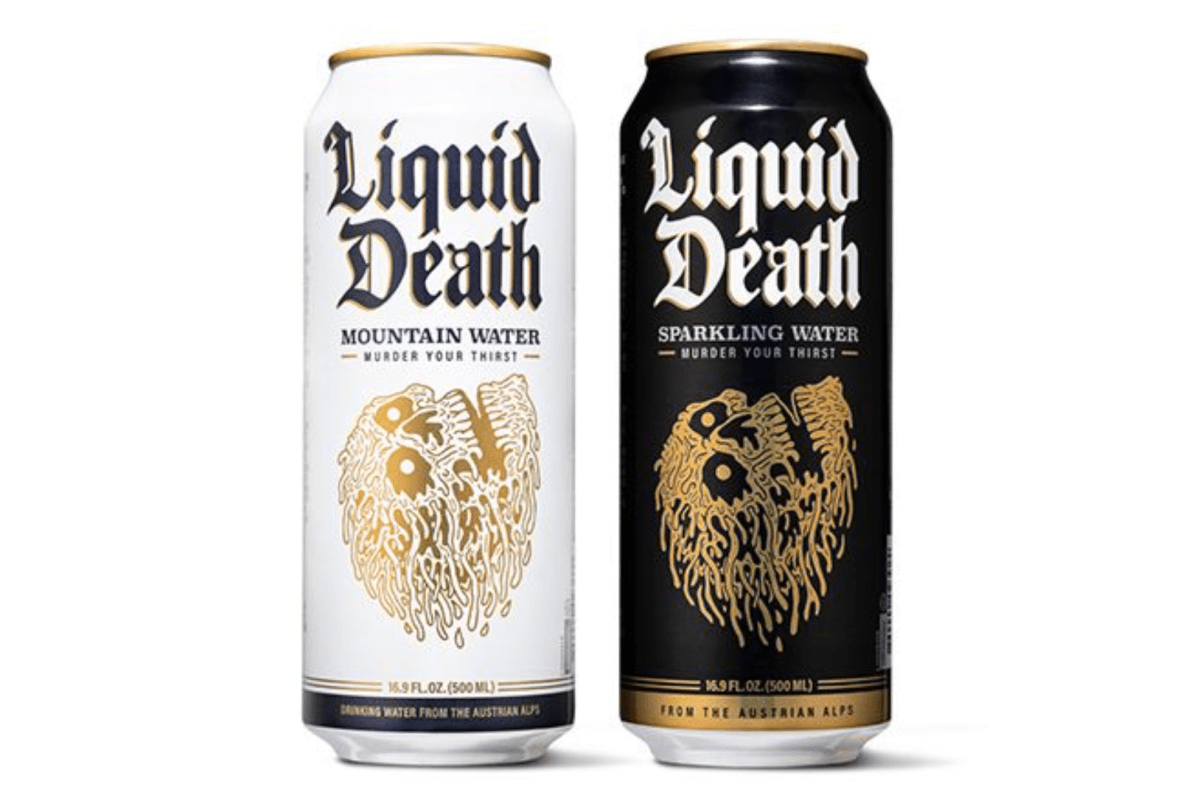Liquid Death, a company specializing in canned water, recently made headlines for raising $67 million in venture funding at a $1.4 billion valuation. With $263 million in sales in 2023, it’s clear that this startup is making a splash in the beverage industry.
But Liquid Death is just one of many venture-backed beverage startups that have emerged in recent years, driven by the desire to disrupt giants like Coca-Cola and Pepsi.
According to Science Ventures’ managing director, Michael Jones, Liquid Death’s potential to shake up the market was too exciting for his firm to pass up. “We were in the market for culturally relevant companies with better-for-you products that redefined a tired and old category,” he explained. “His investing team saw Liquid Death as a super disruptive brand.”
However, breaking into the beverage industry is no easy feat for startups. It takes a significant amount of capital, a strong understanding of customer preferences, and the ability to inspire repeat purchases.
Dan Buckstaff, chief marketing officer for retailer data company SPINS, compares this to the challenges faced by technology companies. “You may think you can’t squeeze another category in here, but instead you approach it differently,” he said. “You take inspiration from others or maybe there’s a new technology that allows you to do it, or data. That does lead to companies that can create hundreds of millions in ARR.”
Liquid Death’s success can be attributed to their clever marketing and strategic placement in retail stores, bars, restaurants, and events. By taking cues from the beer industry, they have managed to gain a following and generate revenue. Buckstaff even hosted a Liquid Death party at a recent conference, highlighting how the brand has become a cultural phenomenon.
He took an informal poll from people who attended asking how often they ordered beer or wine just to be thought of as social. Half of them said they did. That made him realize the enormous possible market for companies like Liquid Death that have alcohol-inspired brand names and packaging but are healthier alternatives.
This trend has not gone unnoticed by other startups in the beverage industry. For example, Not Beer, a new premium sparkling water brand launching in April, is targeting consumers who want to drink less alcohol but still have fun.
Founder Dillion Dandurand explains, “Gen Z drinks less than any of the generations before them. These people still want to have fun, but they are realizing they don’t need to drink alcohol to have fun or they don’t need to drink as much alcohol to have fun. In fact, getting a nice buzz but not getting wasted is probably more fun.”
With the market for non-alcoholic alternatives on the rise, there is a huge potential for these types of startups to succeed.
Upending the industry
It’s not just water that is attracting venture funding and celebrity investors. Companies like Odyssey, which infuses drinks with supplements and botanicals, have also received millions in funding from high-profile backers.
Other notable ventures backed by celebrities include soda startups Olipop and Poppi, as well as the healthy lemonade alternative Lemon Perfect. As these companies gain popularity and market share, they are also catching the attention of larger corporations.
BodyArmor, a coconut vitamin water brand, was acquired by Coca-Cola for $5.6 billion after raising $36 million in venture capital. And back in 2016, Dr Pepper Snapple Group bought antioxidant-infused drink maker Bai for $1.7 billion after the company had raised just over $10 million in venture capital.
This trend of large beverage companies acquiring smaller, innovative startups is expected to continue, making beverage startups an attractive investment opportunity.
A new innovation cycle
It’s no surprise that beverage startups are attracting interest from investors, especially given the current market conditions. Jeff Klineman, editor in chief of food and beverage-oriented media company BevNET, believes that this is just the beginning of a new innovation cycle for the industry.
“The past couple of years have seen funds having more trouble raising, strategics cooling off their acquisition plans, and tighter lending conditions,” says Klineman. “CPG funds are deploying more slowly and there’s more competition for brands that are actually growing and doing well.”
However, not all beverage startups are seeing success in the current market. Klineman suggests that those that are not meeting consumer demands or showing a path to profitability may struggle to secure funding.
A promising future
Succeeding in the beverage industry takes expertise and skill, but for investors willing to put in the effort and time, the potential for strong returns is undeniable. As Malamatinas, founder and managing partner at food and beverage-focused Melitas Ventures, explains, “There is a certain level of know-how and skills for these businesses to scale.”
For those who can navigate the challenges and identify the brands that will stand the test of time, the category looks set to produce impressive returns. Malamantinas points out that even in the face of technological advancements and the rise of AI, the best performing stock is still a beverage company, proving that this industry is here to stay.
With Expo West, the food industry’s largest trade show, seeing a surge in new exhibitors, Buckstaff believes we have entered a new innovation cycle for beverages. And with successful startups like Bai, Olipop, and Liquid Death paving the way, the possibilities for future breakthroughs are endless.
“It leads me to believe that maybe we’ve entered a new innovation cycle,” he says.
This is an exciting time for the beverage industry, with established companies facing disruption from innovative startups. Who will be the next Liquid Death? Only time will tell, but one thing is for sure – the future looks promising for this sector.








